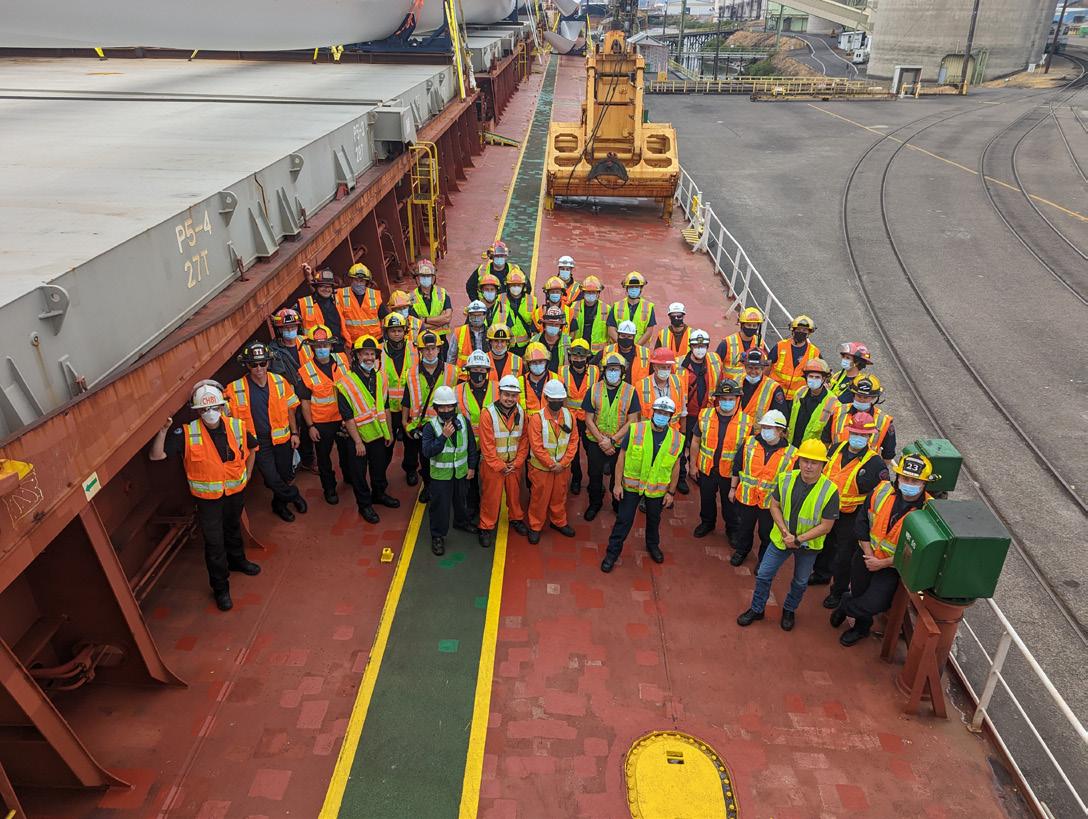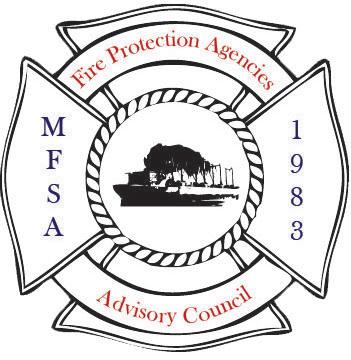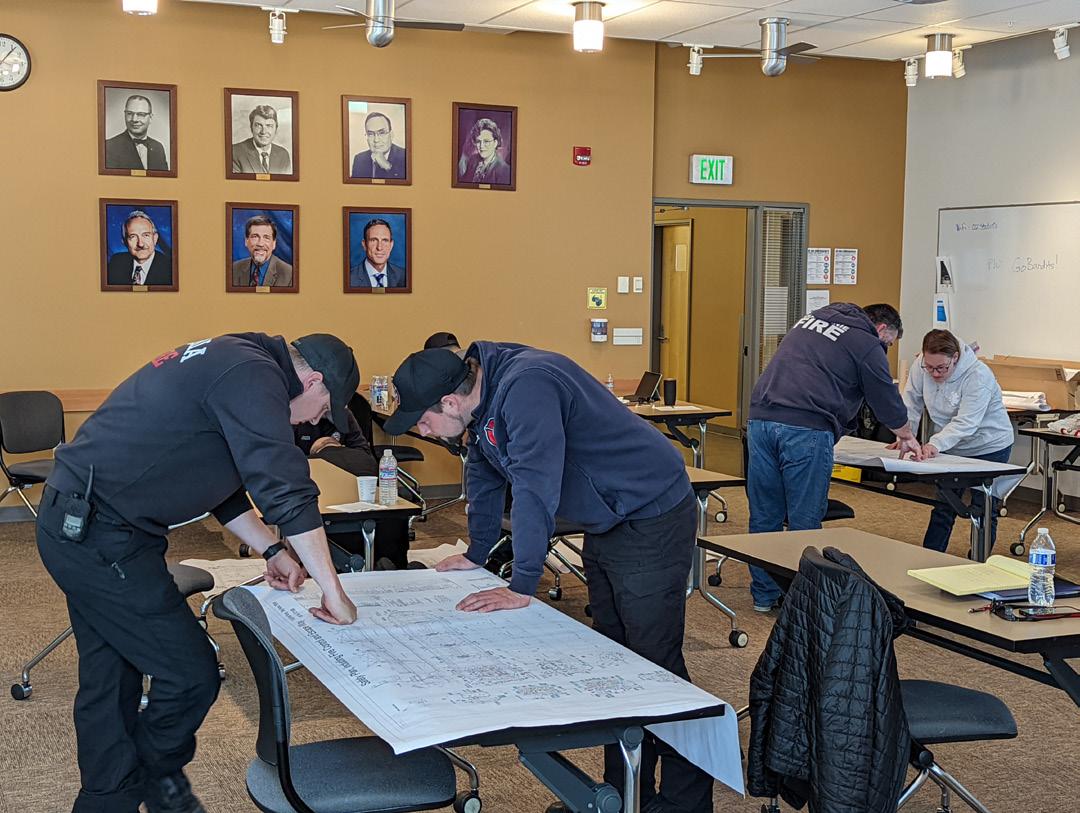
1 minute read
REGIONAL AWARENESS LEVEL TRAINING
Fpaac
Fpaac Operations Level Training
Advertisement
In addition to our annually scheduled Awareness Level Training held in April, FPAAC was contacted by Astoria Fire to hold a second Awareness Training for their auto and mutual aid agencies with the aim of greater understanding of the complexities engaging with a shipboard fire. Marine Firefighter Awareness prepares personnel to assist with firefighting operations, but not to enter an immediately dangerous atmosphere.

With the help of Astoria Fire DC Terry Corbit, FPAAC was able to utilize a Clatsop Community College classroom in June for Training Coordinator Don Doyle to deliver an expansive presentation on the different training levels offered by FPAAC, the importance of the shipping industry to the regional economy, port facilities, and construction of piers and docks. Retired Longview Fire LT Dave Wyman and Clatskanie Fire Division Officer Gabe Wiggins assisted with a Fire Control Plan search to show the complexity of vessel plans. This was attended by nine firefighters, company and command officers from five different agencies, including three non-FPAAC agencies.
FPAAC hosted a day-long Operations Level Training held at the Cowlitz County Event Center and Port of Longview on September 14th in Longview, WA. This training consisted of a classroom-based session in the morning led by Training Coordinator Don Doyle, where he detailed the sizes and many complexities of various vessel types and operations. Following lunch, the group of over 40 participants was welcomed abord the M/V FLORENTIA for a vessel familiarization tour at the Port of Longview. This event was well attended and received great scores on the evaluation forms. Special thanks to Port of Longview’s Marine Terminal Manager Larry Landgraver for coordinating the vessel tour.
Operations Level Training is the second step in our tiered training program designed to increase shipboard firefighting knowledge inside the FPAAC member agencies. Personnel are trained to the most basic shipboard interior operations, which allows them to perform safely and efficiently in a tactical role at a vessel incident, recognize and report hazards through the chain of command, and take appropriate actions when those hazards become life threatening.











